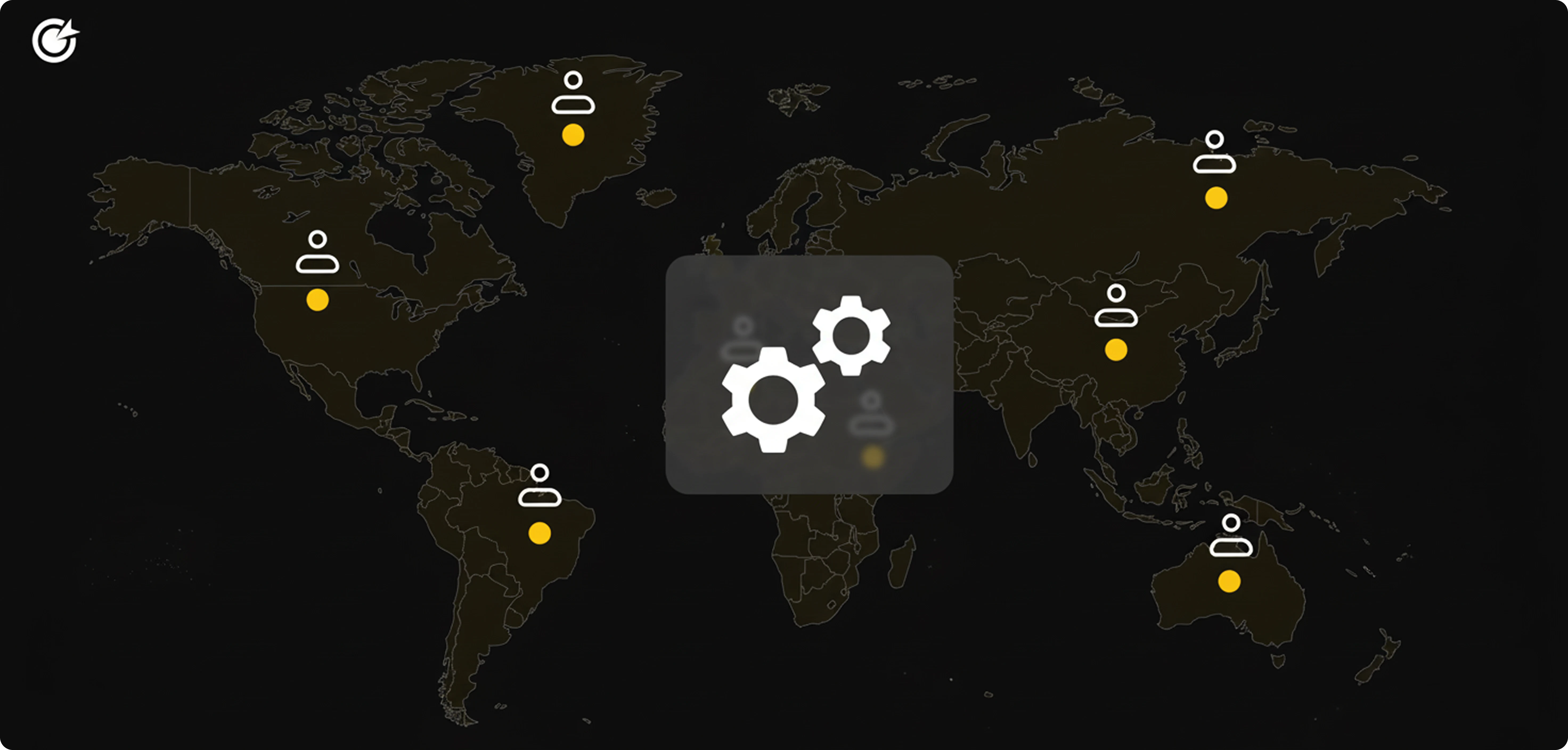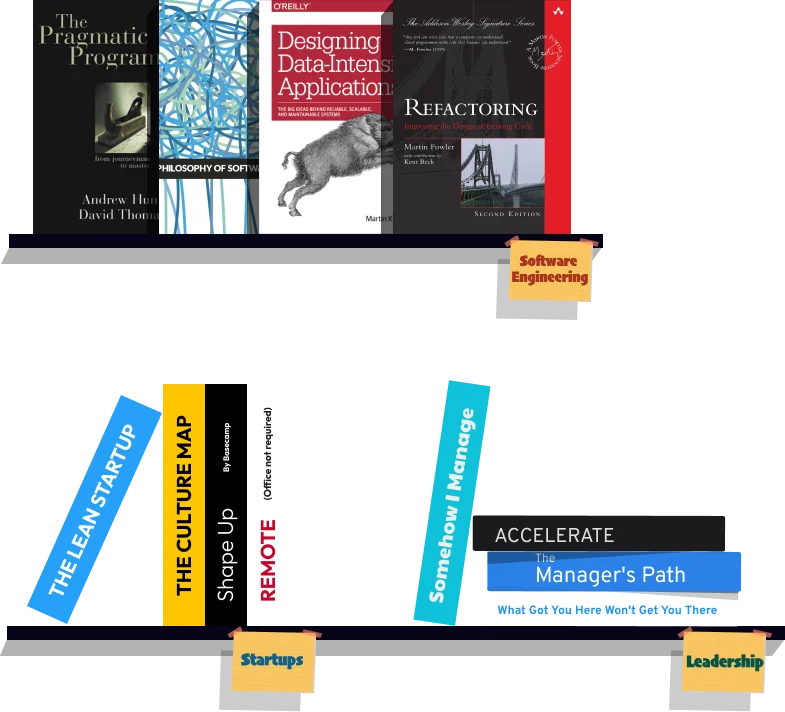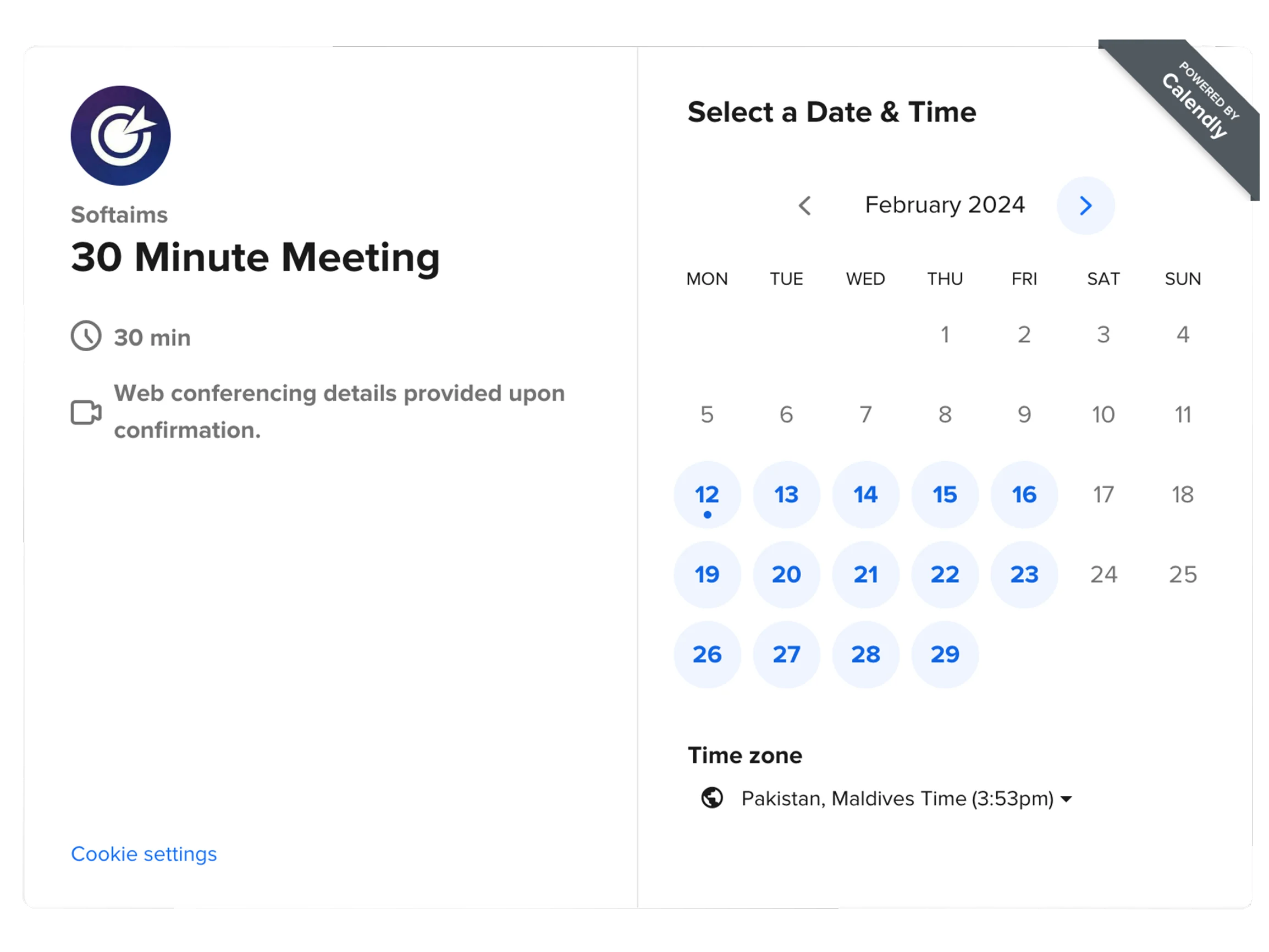The Core Role of a Backend Developer
Backend developers are the architects and engineers of the server-side of an application. They are responsible for everything the user doesn't see, including the application's logic, database interactions, and the APIs that connect the server to the front-end. They build the foundational code that makes an application functional, reliable, and scalable.

Hiring a skilled backend developer is crucial because they are the guardians of an application's data and performance. A well-built backend ensures that the user interface has fast and secure access to the information it needs, creating a seamless experience for the end-user and a stable system for the business.
Proficiency in a Backend Language and Framework
A core competency for any backend developer is deep expertise in at least one server-side programming language and its primary framework. Common choices include Node.js with Express, Python with Django or Flask, Java with Spring, C# with .NET, or Ruby with Rails. This specialization allows them to write clean, efficient, and idiomatic code.
The chosen framework provides the structure and tools necessary to build robust applications quickly. A developer's proficiency in their stack's ecosystem determines their ability to implement complex business logic, handle requests, and integrate with other services in a maintainable and scalable way.
API Design and Development
Backend developers are responsible for creating the communication bridge between the server and any client application (like a web browser or mobile app). This is accomplished through APIs (Application Programming Interfaces). A strong candidate must be an expert in designing and building well-structured RESTful APIs or, increasingly, GraphQL APIs.
This includes a deep understanding of HTTP methods (GET, POST, PUT, DELETE), proper use of status codes, and the ability to create secure, well-documented, and versioned endpoints. The quality of the API directly impacts the performance and capabilities of the front-end experience.
Database Management and Data Modeling
At the heart of almost every application is a database, and a backend developer must be skilled at managing it. This requires proficiency with both SQL databases like PostgreSQL or MySQL and NoSQL databases like MongoDB or Redis. They must be able to choose the right type of database for the task at hand.
Beyond just using a database, they must be able to design efficient and logical data models and schemas. This involves writing optimized queries, creating indexes to improve performance, and ensuring data integrity through proper constraints. Their work ensures that data is stored and retrieved with both speed and accuracy.
Security Best Practices
Security is not an afterthought for a backend developer; it is a fundamental part of their role. They are responsible for protecting the application and its data from threats. A candidate must have a strong understanding of security principles and common vulnerabilities like SQL injection, Cross-Site Scripting (XSS), and Cross-Site Request Forgery (CSRF).
Key skills include implementing robust authentication and authorization mechanisms (e.g., OAuth 2.0, JWT), hashing passwords securely, and validating all incoming data. A developer with a security-first mindset is essential for building a trustworthy and resilient application.
Server and Cloud Infrastructure Management
A backend developer's code runs on a server, and they need to be comfortable in that environment. This includes a foundational understanding of cloud infrastructure and experience with a major cloud provider such as AWS, Google Cloud, or Microsoft Azure. They should be familiar with core services related to computing, storage, and databases.
While they may not be dedicated DevOps engineers, they should understand how to deploy their application, monitor its performance, and troubleshoot issues in a production environment. This operational knowledge is critical for maintaining a healthy and available service for users.
DevOps, CI CD and Containerization
Modern backend development relies heavily on DevOps practices to automate and streamline the software delivery process. A skilled developer should have hands-on experience with CI/CD (Continuous Integration/Continuous Deployment) pipelines to automate the testing and deployment of their code.
Furthermore, proficiency with containerization technologies, especially Docker, is now a standard requirement. The ability to create a Docker container for an application ensures consistency across different environments and simplifies deployment. Familiarity with orchestration tools like Kubernetes is a significant plus.
Testing and Quality Assurance
A professional backend developer understands that code is only complete once it is thoroughly tested. They must have a disciplined approach to quality assurance, including writing unit tests to validate individual pieces of logic, integration tests to ensure different parts of the system work together, and API tests to verify endpoints.
Experience with the relevant testing frameworks for their language of choice (e.g., JUnit for Java, PyTest for Python) is essential. A commitment to writing tests results in a more reliable, maintainable, and bug-free application over the long term.
Scalability and Performance Optimization
As an application grows, its backend must be able to handle an increasing amount of traffic and data without a drop in performance. A top-tier backend developer thinks about scalability from the start. They should be knowledgeable about techniques for optimizing application performance.
This includes implementing caching strategies to reduce database load, designing for horizontal scaling, using load balancers to distribute traffic, and writing efficient, non-blocking code. Their ability to identify and resolve performance bottlenecks is crucial for an application's long-term success.
Version Control with Git
Collaboration in a software team is impossible without strong version control practices. A backend developer must be highly proficient with Git, the industry-standard version control system. This goes beyond basic commands to include a solid understanding of branching strategies like GitFlow.
They must be comfortable participating in a code review process using pull requests on platforms like GitHub or GitLab. Clean commit histories and the ability to resolve merge conflicts efficiently are signs of a disciplined and experienced professional.
How Much Does It Cost to Hire a Backend Developer
The cost to hire a backend developer is influenced by their geographic location, level of experience, and the specific technology stack they specialize in. As the architects of an application's core logic and data, their skills are in high demand, and this is reflected in their salaries.
Salaries in major tech centers in North America and Western Europe are typically the highest. In contrast, hiring in Eastern Europe, Latin America, or Asia can provide access to world-class talent at a more competitive cost. The following table gives an estimated average annual salary for a mid-level backend developer in several countries.
| Country |
Average Annual Salary (USD) |
| United States |
$130,000 |
| United Kingdom |
$90,000 |
| Germany |
$85,000 |
| Canada |
$100,000 |
| Australia |
$95,000 |
| Poland |
$60,000 |
| Ukraine |
$55,000 |
| India |
$40,000 |
| Brazil |
$50,000 |
| Argentina |
$45,000 |
When to Hire Dedicated Backend Developers Versus Freelance Backend Developers
Hiring a dedicated, full-time backend developer is the best choice when you are building the core of a long-term product. This model is ideal for projects that involve complex business logic, sensitive data, and the need for ongoing maintenance and scalability. A dedicated developer becomes deeply familiar with your system's architecture and is committed to its long-term health and success.
Hiring a freelance backend developer is more suitable for specific, well-defined projects or for augmenting your team's capacity for a limited time. This is an excellent option for building a specific microservice, developing a proof-of-concept, or getting expert help on a particular technology. Freelancers provide flexibility and specialized skills without the long-term commitment of a full-time employee.
Why Do Companies Hire Backend Developers
Companies hire backend developers to build and maintain the "brain" of their applications. They write the server-side code that processes user requests, securely manages and retrieves data from databases, and executes the core business logic that makes a product work. Without a strong backend, there is no application; there is only a static and non-functional user interface.
Furthermore, backend developers are crucial for ensuring an application is secure, scalable, and performant. They implement the security measures that protect user data, design the system architecture to handle growth, and optimize code to ensure the application runs quickly and efficiently. They are the essential engineers who build the reliable and powerful foundation upon which all user-facing features depend.
In conclusion, hiring an elite backend developer requires a search for a candidate who embodies a blend of disciplined coding, strategic architectural thinking, and operational awareness. The ideal professional combines expertise in a specific language and framework with a deep understanding of databases, API design, security, and cloud infrastructure. By prioritizing candidates who demonstrate a commitment to quality through robust testing and an understanding of scalability, companies can build the powerful, secure, and reliable server-side foundations necessary for any successful modern application.



































